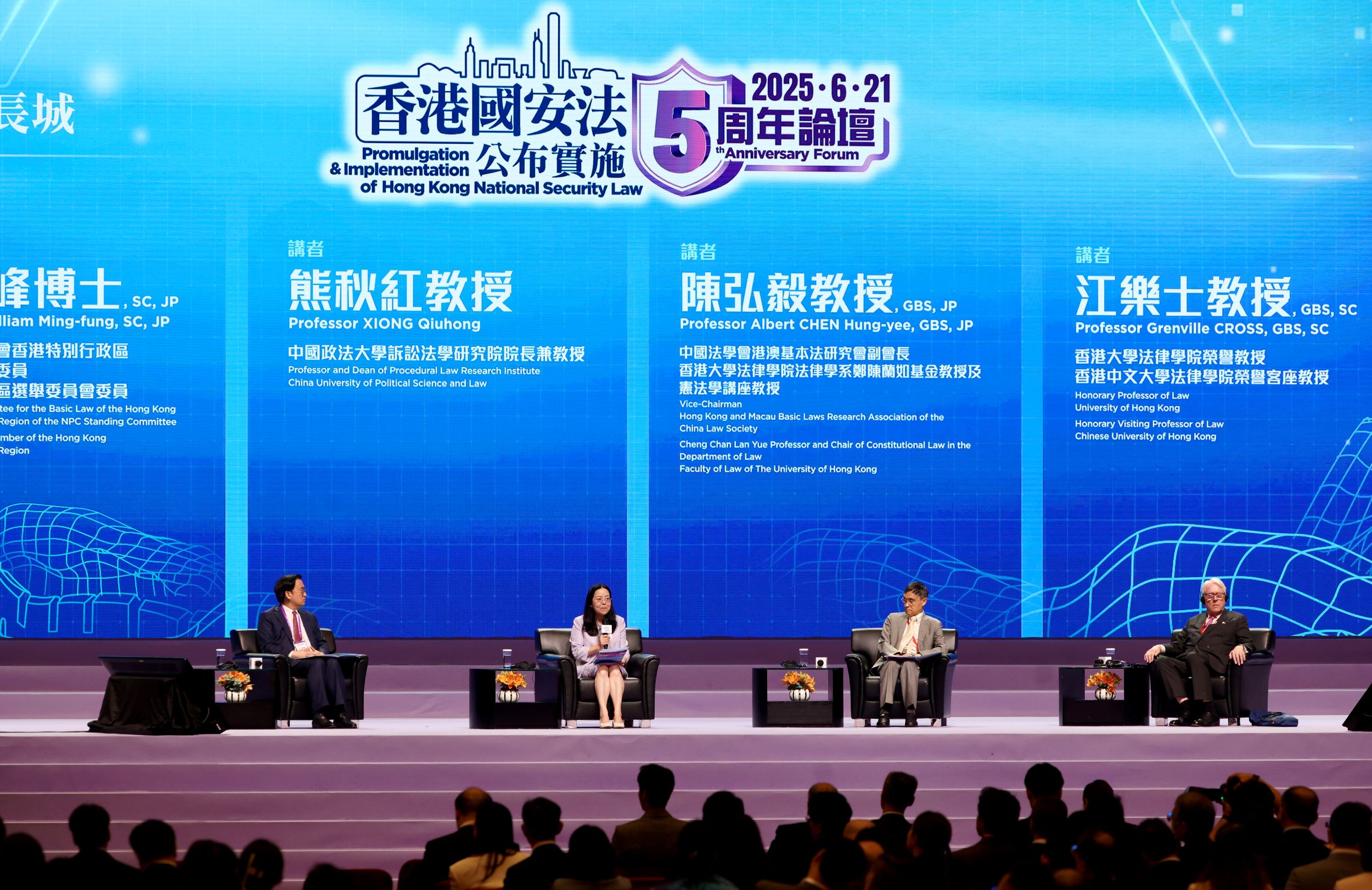
Legal experts from the Chinese mainland and the Hong Kong Special Administrative Region on Saturday praised the National Security Law for Hong Kong for striking a balance between the mainland’s legal system and the city’s common law practices during discussions held in conjunction with the Fifth Anniversary of the Promulgation and Implementation of Hong Kong National Security Forum.
At the forum’s opening ceremony on Saturday morning, Xia Baolong – director of the Hong Kong and Macao Work Office of the Communist Party of China Central Committee, as well as the State Council’s Hong Kong and Macao Affairs Office – hailed the NSL as the city’s “guardian,” warning that vigilance remains crucial against growing external threats.
READ MORE: Xia hails NSL as ‘guardian of city’, urges vigilance against threats
During panel discussions in the afternoon, legal experts examined the NSL’s legislative intent, historical context and enforcement framework since its enactment on June 30, 2020.
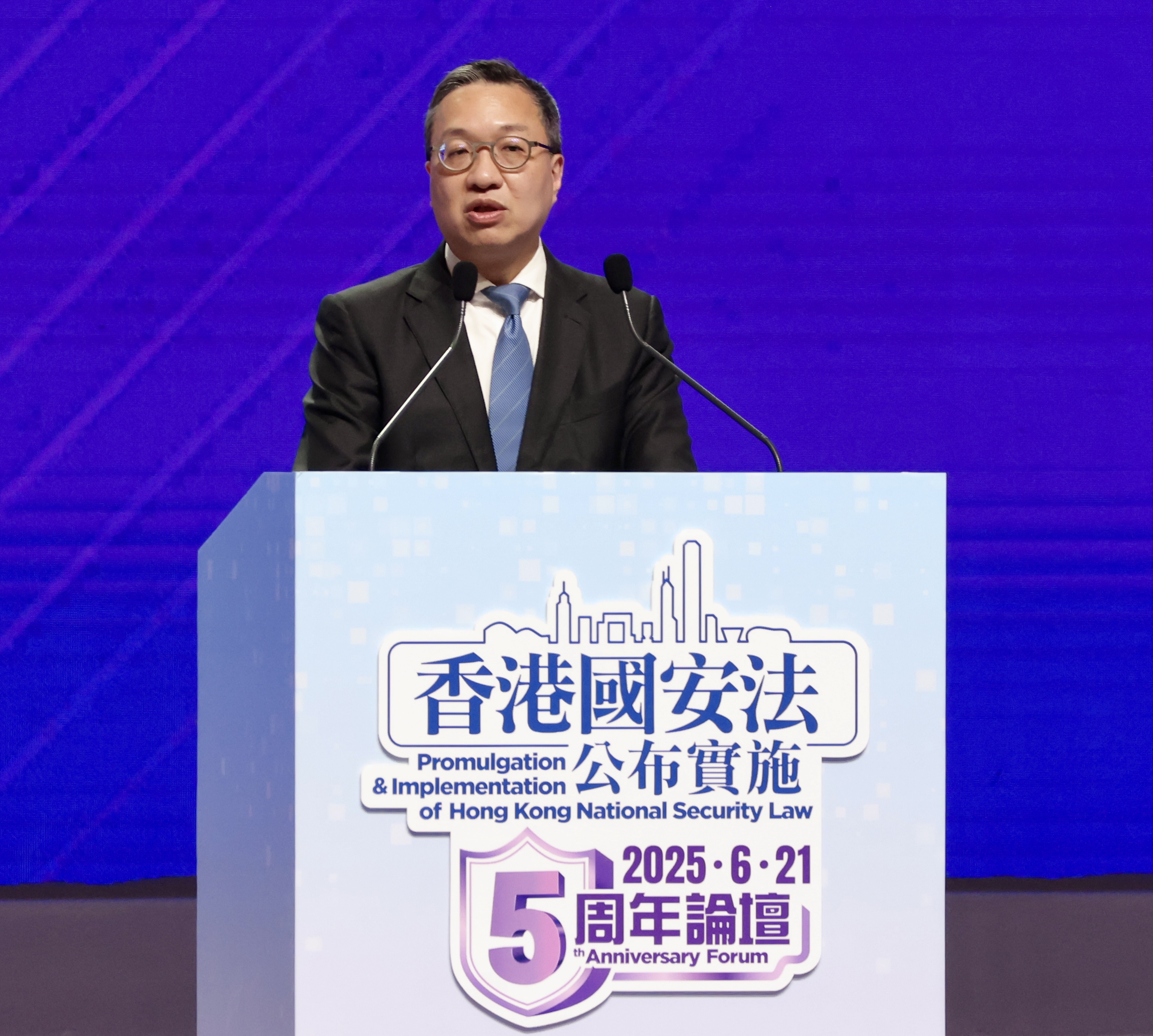
In opening remarks, HKSAR Secretary for Justice Paul Lam Ting-kwok emphasized that safeguarding national security is a sustained constitutional duty.
He said the past five years have provided ample practical experience, making now an opportune moment to assess how the NSL – a law written in accordance with the mainland’s legal principles – aligns with Hong Kong’s common law system and local security legislation.
Hong Kong must leverage its common law system to protect national security while reinforcing the city’s role as a global hub for finance, trade, and shipping, Lam said.
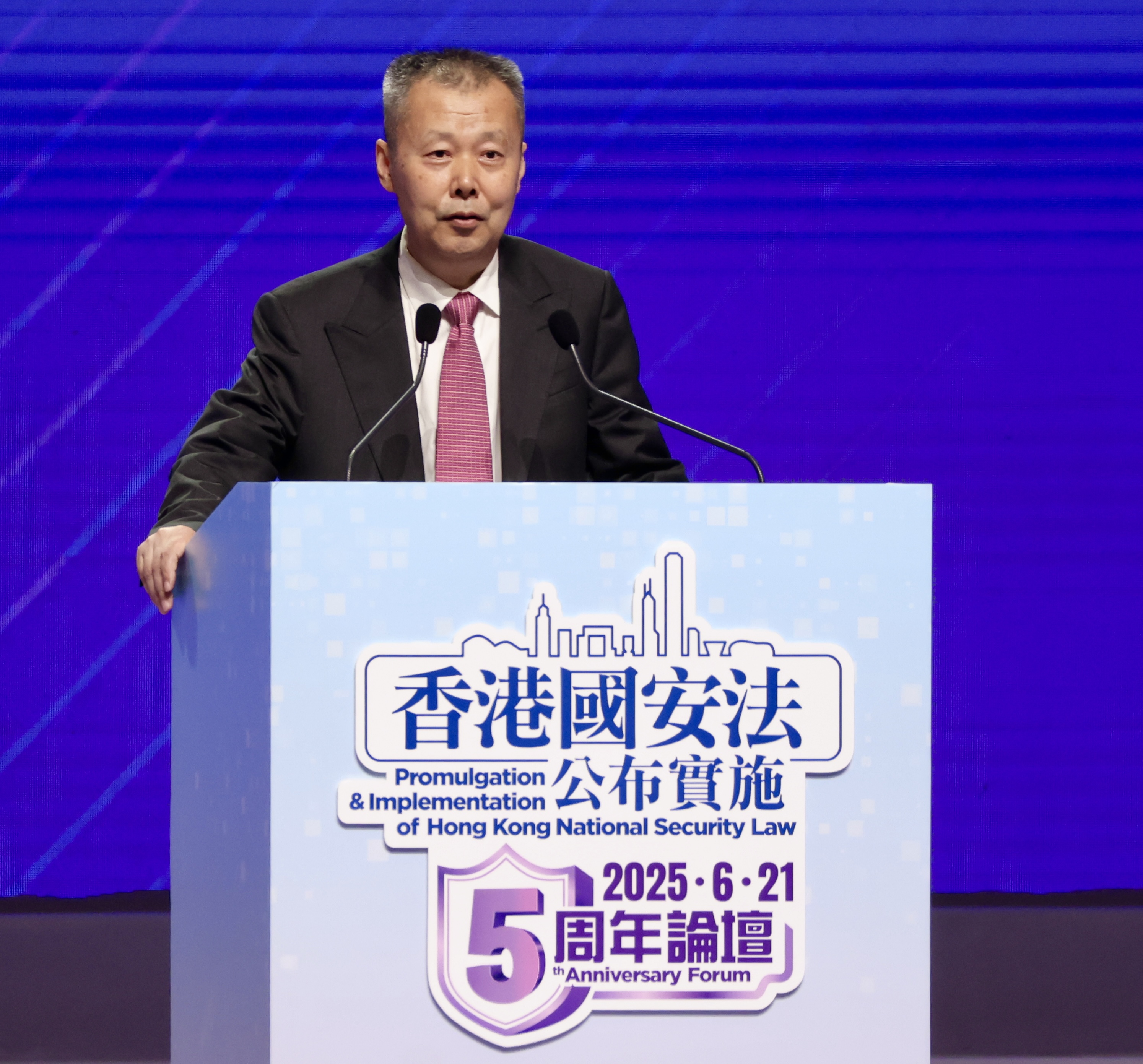
Yang Zhaoye, head of the research office of the Hong Kong and Macao Basic Law committees under the National People’s Congress Standing Committee, highlighted the NSL’s scientific, democratic and lawful drafting process.
He explained that the NPC Standing Committee has carefully balanced constitutional adherence with Hong Kong’s Basic Law and local realities.
The four key offenses listed under the NSL – secession, subversion, terrorism and collusion with external forces – are clearly defined, with precise punishment standards, providing robust legal safeguards, Yang said. Besides, the central government has guided Hong Kong in strengthening enforcement mechanisms, including the establishment of the Office for Safeguarding National Security of the Central People’s Government in the HKSAR.
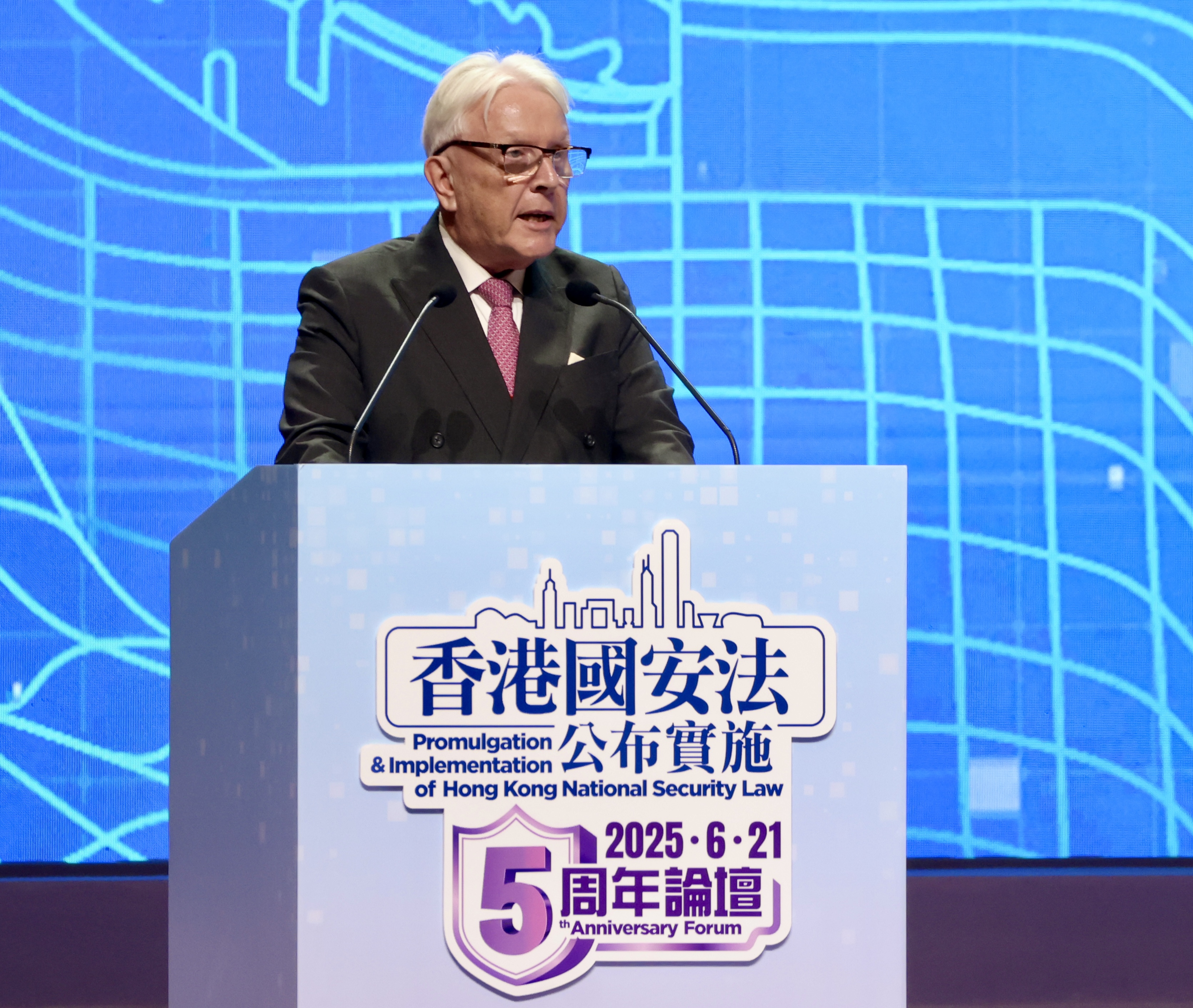
Grenville Cross, a senior counsel and honorary law professor at The University of Hong Kong, credited the NSL with restoring order, protecting national security and preserving the city’s autonomy under “one country, two systems”.
IN PICTURES: Celebrating 5 years of NSL
Despite Western criticisms, he said the law has been successfully integrated with the SAR’s legal system, with careful enforcement that respects human rights and judicial independence. “The law has neutralized foreign-backed destabilization attempts,” Cross said. “Hong Kong will no longer be exploited by those seeking to undermine China.”
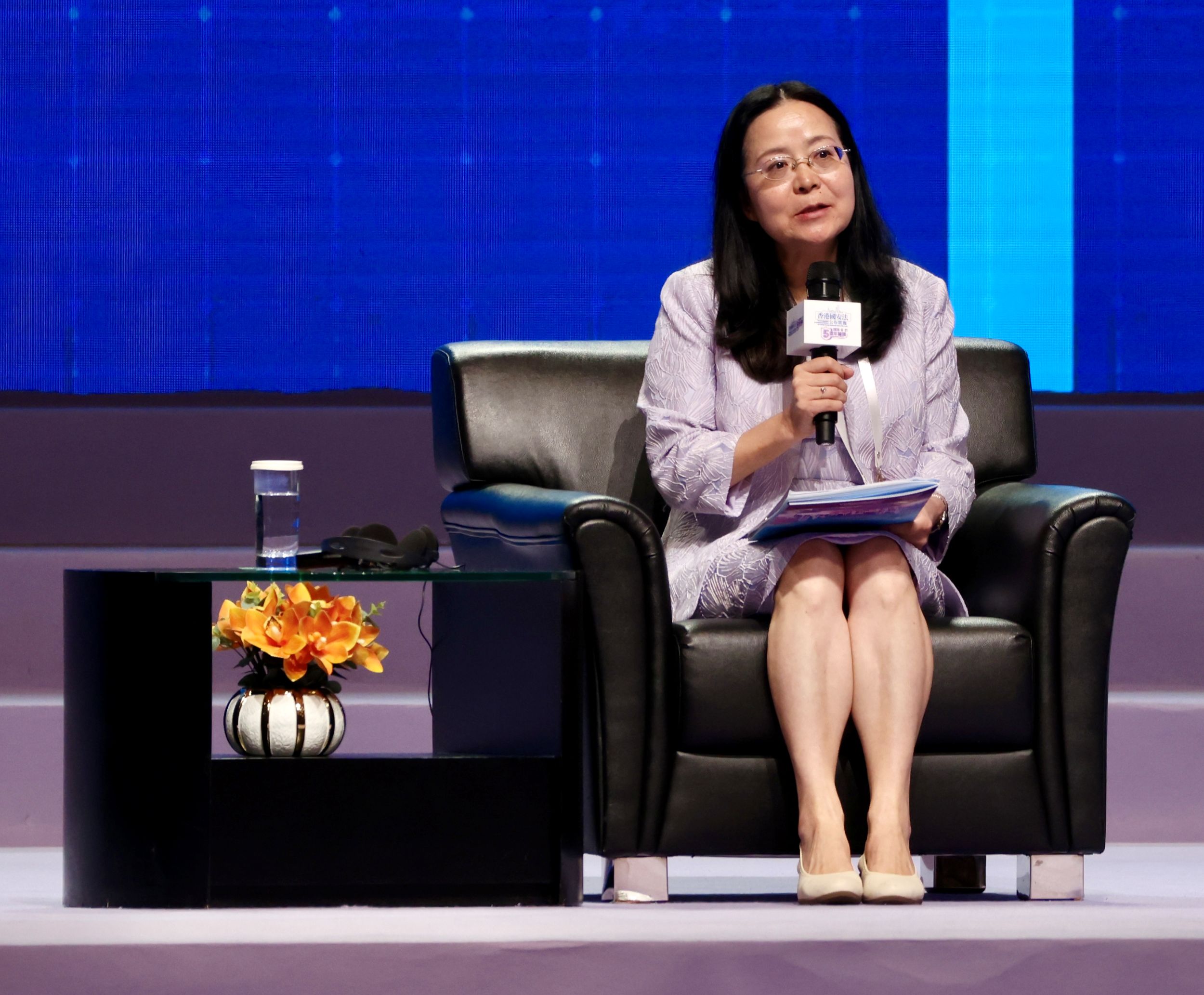
Xiong Qiuhong, director of the Procedural Law Research Institute at the China University of Political Science and Law, pointed to the NSL’s dual-legal-system features, including a two-track enforcement mechanism for national security cases.
She called it an innovative approach under “one country, two systems,” reflecting both the central government’s governance and Hong Kong’s high degree of autonomy.
The forum, organized by the HKSAR government, concluded with separate panel discussions among Lam and youth leaders about fostering legal awareness and young people’s engagement in upholding national security.
Contact the writer at lilei@chinadailyhk.com


